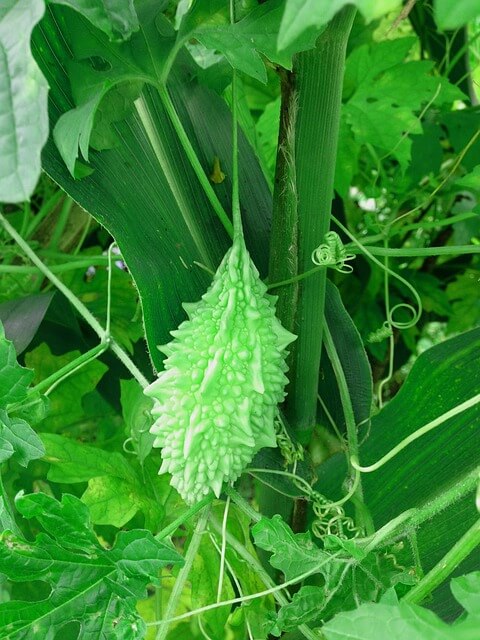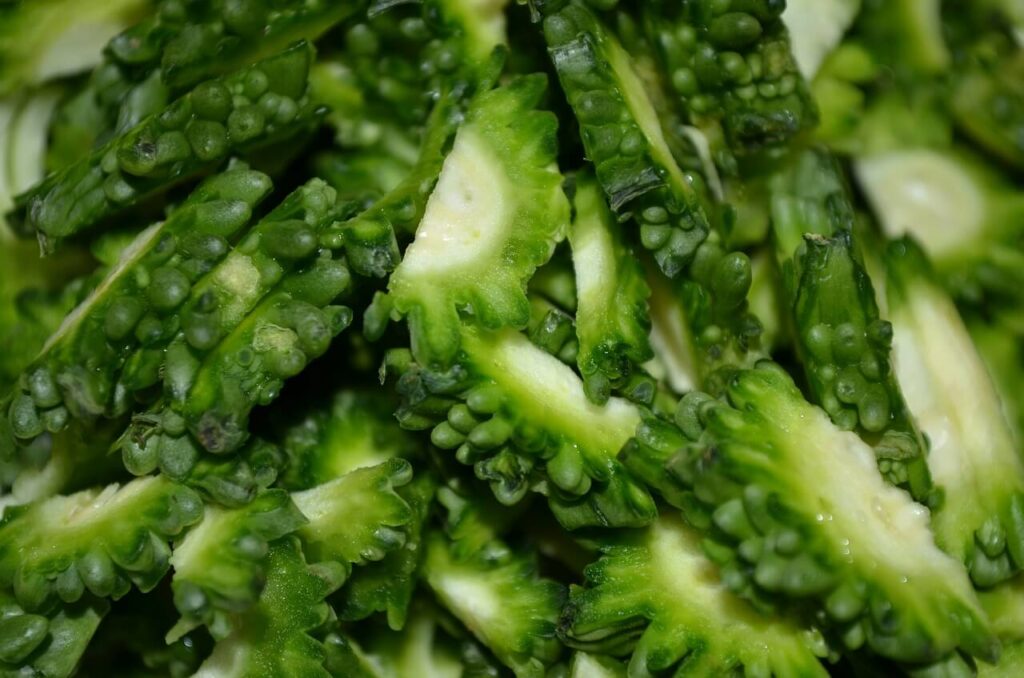Can bitter gourd help people with prediabetes and diabetes? Is there scientific evidence supporting the efficacy of bitter gourd in managing diabetes? Read on to know.
The 21st century continues to see an increasing number of lifestyle diseases, and Diabetes is one among them. An estimated 400 million people live with diabetes globally.
The good news is, with conscious efforts like dietary habits and exercise, diabetes can be managed very well. Further, prediabetics can postpone the onset of diabetes.
Certain vegetables and fruits possess excellent medicinal properties that regular intake of them can reduce the risk of the onset of various diseases. Bitter Gourd or Bitter Melon is one such vegetable.
Particularly, Bitter gourd’s ability to influence the blood sugar levels is of much interest as a recent study says the vegetable consumption can help prediabetics ward off diabetes and those who already have diabetes to manage it well.
Origin Of Bitter Melon
Bitter gourd, also known as the bitter melon, is native to the Indian subcontinent. Introduced to China in the 14th century, the plant grows widely in the tropical and subtropical regions of Africa, Asia and the Caribbean.
The botanical name is Momordica charantia L. The bitter-tasting vegetable-fruit offers numerous health benefits. Some of them include maintaining blood sugar levels, lowering bad cholesterol, boosting immunity and aiding weight loss.
Study proves regular consumption of bitter gourd helps in preventing and managing diabetes

A research paper titled “Bitter gourd reduces elevated fasting plasma glucose levels in an intervention study among prediabetics in Tanzania” was published in Elsevier Journal of Ethnopharmacology Volume 216 on 24 April 2018.
Based on the results of a clinical trial conducted, the paper assesses the anti-diabetic effects of bitter gourd on those who are prediabetic.
Who Took Part In The Clinical Trials?
The randomised placebo-controlled single-blinded, crossover intervention study was conducted in the Kilimanjaro Clinical Research Institute (KCRI). After the screening process, 61 participants chosen in the age group 30 to 65 years participated in the clinical trial. The group underwent the necessary tests to establish the baseline values before the start of the trial period.
The clinical trial
The control group consumed a daily dose of 2.5g of bitter gourd (with added ingredients to mask the bitterness). The placebo group consumed cucumber powder (with the same added ingredients) over eight weeks. After a 4-week washout period and a crossover, the experiment continued for another eight weeks.
The participants maintained the same diet and exercise routine during the period and had to inform of changes, if any. Besides, the participants underwent regular assessments during weekly checkups, before and after each supplementation phase, to monitor any changes among the test subjects.
Among the 61 participants, few dropped out before the end of the study period. So, the results were based on the remaining 52 participants who completed the trial.
You might also like:
- The Health Benefits Of Bitter Gourd
- Know Why Your Oral Health Is More Than A Good Smile And Good Teeth!
Were There Any Significant Side Effects?
Most of the participants responded well to the bitter gourd supplement, with a few reporting mild adverse effects such as flatulence, nausea, etc.; but, no significant side effects occurred.
Finally, the primary outcome variable, the Fasting Plasma Glucose (FPG), was analysed, and the results tabulated.
What Was The Conclusion?

Based on the findings of the research study, the authors concluded that,
“The consumption of 2.5 g dry bitter gourd (equivalent to 50 g fresh bitter gourd) may depict an effective approach to lower elevated blood glucose levels in individuals with prediabetes. Further, the glucose-lowering effect of bitter gourd was found higher among participants who started with higher baseline FPG levels. As the current study included prediabetic participants only, the glucose-lowering effect of bitter gourd is expected to be even more pronounced among patients with higher glucose levels. However, more studies are needed to support these findings.”
So, Can Bitter Gourd Help In Preventing Diabetes?
Yes. There are, in fact, clear indications that making this humble fruit-vegetable a part of your diet can help lead a diabetes-free life. However, consult with your doctor before making any dietary changes in this regard, especially if you are on any medication.
To read about the clinical trial details, click here to read the research paper published on the Sciencedirect.com website.
